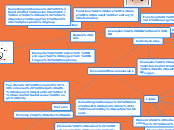Movius Macromolecules

Movius Macromolecules
Nucleic Acids
Something unique: 3 parts of nucleotides
are a base, a pentose sugar, and a phosphate group
Examples: DNA and RNA
Functions: store & transmit hereditary information
Elements: Carbon, Hydrogen, Oxygen, Nitrogen, Phosphorus
Monomer: Nucleotides
Carbohydrates
https://www.khanacademy.org/science/high-school-biology/hs-biology-foundations/hs-biological-macromolecules/v/introduction-to-carbohydrates
Something unique: Plants store carbs with starch and animals store carbs with glycogen
Examples: sugars
starches
cellulose (cell wall)
Glycogen
Functions: Quick energy, energy storage
Monomer: Monosaccharides
Lipids
https://www.khanacademy.org/science/high-school-biology/hs-biology-foundations/hs-biological-macromolecules/v/introduction-to-lipids
Saturated fats
Unsaturated fats
Something unique: Proteins fold
and twist to make a 3D shape
Examples: Fats
Oils
phospholipids
Steroids
Functions: Cushions organs, energy storage, and insulates body
Elements: Carbon, Hydrogen, and Oxygen
Monomer: Triglycerides
Proteins
Something unique: Amino acid chains are
linked by peptide bonds
Examples: muscle
fingernails, claws
skin
Hair
Functions: Movement, hormones, helps with immune system, and carries substances through body
Elements: Carbon, Hydrogen, Oxygen, and Nitrogen
Monomer: Amino Acids

